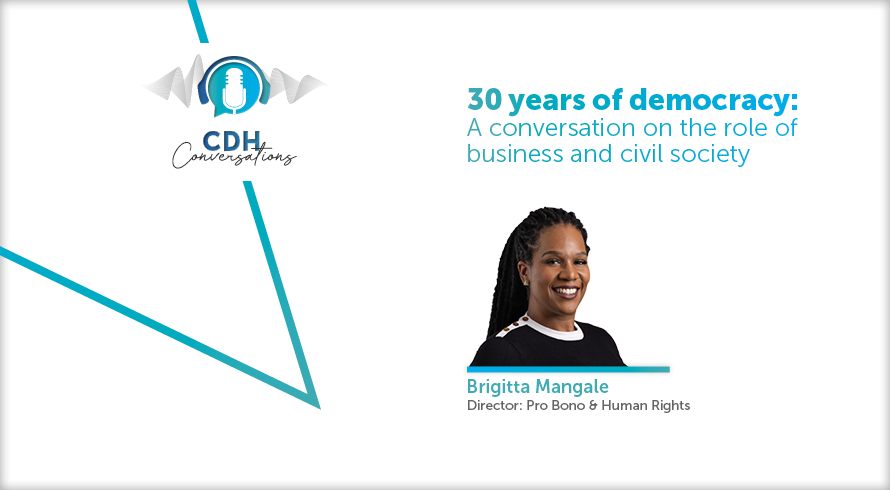Underlying cause in a section 197 transfer? Labour Appeal Court clarifies
At a glance
- The recent Labour Appeal Court (LAC) decision in Zeda Car Leasing (Pty) Ltd t/a Avis Fleet v Belinda Perlee (JA01/24) provides further clarification on the interpretation of section 197 of the Labour Relations Act 66 of 1996 (LRA).
- The LAC upheld the appeal against the Labour Court’s judgment and held that the outsourcing of services alone will not, without more, automatically trigger the application of section 197.
- This decision reinforces the principle that outsourcing does not automatically amount to a transfer of business under section 197. Employers must carefully assess the specific circumstances of each transaction to determine whether the legal requirements for a transfer have been met.
This matter concerned a dispute over whether employees of Avis Fleet, who were dismissed following a restructuring exercise, were automatically unfairly dismissed (for reasons related to a transfer of business) or due to the operational requirements of Avis Fleet. Central to the appeal was the question of the legal cause for the restructuring.
Barloworld is a 100% shareholder of Barloworld SA (which in turn, owns 100% of Avis Fleet). Barloworld SA also owns a 51% shareholding in Crownmill Trading (Pty) Ltd (Crownmill), trading as DealersOnline. Dealersbid was another shareholder of Crownmill. Crownmill is thus part of Barloworld’s conglomerate. Barloworld Logistics, Barloworld Equipment and Barloworld Automotive form the three distinct operating segments of Barloworld. Avis Fleet and Crownmill forms part of the Barloworld Automotive Segment.
The respondents were employed by Avis Fleet’s Car Mall unit, responsible for collecting and disposing of vehicles at the end of lease agreements. Avis Fleet would also use the DealersOnline online auction portal for the same purpose.
As part of the restructuring, Barloworld decided to close Car Mall and move the vehicle collection and disposal services to DealersOnline. Given the consequent redundancies, retrenchment of the respondents became necessary. The respondents challenged their dismissals, arguing that the closure of the Car Mall division and contracting of Car Mall’s functions to DealersOnline constituted a transfer of business under section 197 of the LRA. The Labour Court ruled in favour of the respondents, finding that section 197 had been triggered by the closure of Car Mall and the shift of the services provided by it, as a discrete, identifiable entity, to DealersOnline.
The LAC’s findings
On appeal, the LAC was tasked with determining whether a transfer under section 197 indeed arose. The LAC restated the importance of the legal cause in determining whether section 197 is triggered. The LAC upheld the appeal against the Labour Court’s judgment, and held that the mere outsourcing of services alone will not, without more, automatically trigger the application of section 197. In this regard the LAC found that Labour Court erred in its finding that the fact that no transfer of assets occurred was inconsequential as “those assets were never the assets of Car Mall to begin with”. The LAC held that Car Mall was a mere unit comprised of the employees of Avis Fleet and Car Mall was not a distinct business entity which could operate independently from Avis Fleet. Avis Fleet continued as an economic entity leasing and selling fleet cars. The court found that what transferred to DealersOnline was solely an activity or service, nothing more.
The LAC held that, in the circumstances, all that transpired was the contracting out of services to DealersOnline without the transfer of any tangible or intangible assets.
Turning to the legal causa or dominant cause of the dismissals, the LAC found that the operational requirements of Avis Fleet constituted the true causa, thus concluding that the decision to outsource and retrench employees of Car Mall was triggered by operational requirements, rather than a transfer of business. No tangible or intangible assets, such as premises, operating systems or equipment, were transferred from Avis Fleet to DealersOnline. DealersOnline was an independent service provider with its own infrastructure and did not acquire any part of Avis Fleet’s business as a going concern.
Conclusion
This decision reinforces the principle that outsourcing does not automatically amount to a transfer of business under section 197. Employers must carefully assess the specific circumstances of each transaction to determine whether the legal requirements for a transfer have been met. The decisive factor is the legal causa of the transaction, whether there has been a transfer of tangible or intangible assets, employees, or operational control. If a restructuring process merely results in outsourcing services without transferring the core elements of a business, section 197 will not apply. However, where the essential component/s of a business are transferred as a going concern, the new employer will assume all obligations towards the employees. Ensuring this distinction is properly evaluated is crucial for compliance with the LRA and for mitigating potential legal risks.
The information and material published on this website is provided for general purposes only and does not constitute legal advice. We make every effort to ensure that the content is updated regularly and to offer the most current and accurate information. Please consult one of our lawyers on any specific legal problem or matter. We accept no responsibility for any loss or damage, whether direct or consequential, which may arise from reliance on the information contained in these pages. Please refer to our full terms and conditions. Copyright © 2025 Cliffe Dekker Hofmeyr. All rights reserved. For permission to reproduce an article or publication, please contact us cliffedekkerhofmeyr@cdhlegal.com.
Subscribe
We support our clients’ strategic and operational needs by offering innovative, integrated and high quality thought leadership. To stay up to date on the latest legal developments that may potentially impact your business, subscribe to our alerts, seminar and webinar invitations.
Subscribe




